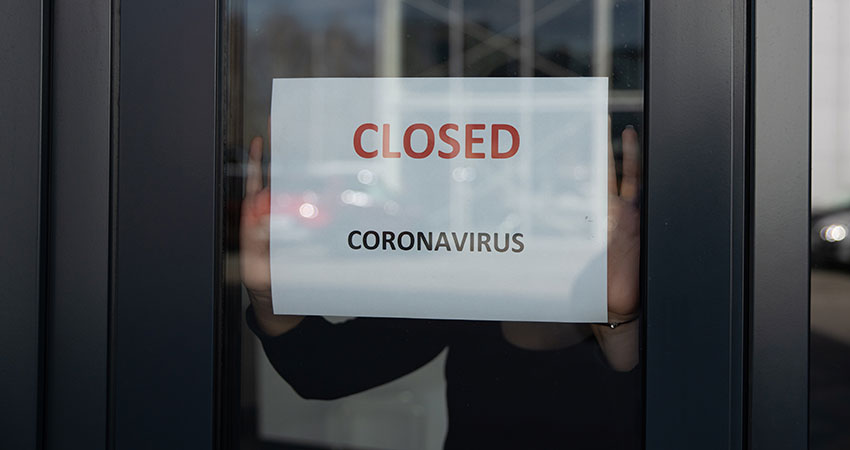The growing coronavirus outbreak is continuing to wreak havoc on retail and ecommerce, as the impact is going beyond store shutdowns to online business being shuttered as well.
Companies that have closed their ecommerce operations in recent days include fashion brands Reformation, Marysia and The Frankie Shop, and retailers TJ Maxx, Marshalls and HomeGoods, according to Glossy. This comes as a growing number of states, including Pennsylvania, Illinois, California, New York, Ohio, Kentucky, Louisiana, Delaware and Connecticut, have issued shutdowns of all nonessential businesses.
Retailers are now looking at layoffs in addition to store closures, such as was announced by fast fashion brand H&M, in order to weather the coronavirus storm. Others providing so-called essential items, including grocers and big-box stores like Walmart and Target, are thriving and even raising pay for associates. Amazon has also increased its overtime pay, while a Queens, NY Amazon facility near LaGuardia Airport was closed last week after a worker tested positive for Covid-19.
Best Buy has seen a huge boost as millions of workers are setting up home offices and remote learning for their school-age or college-age children. The company had been limiting guests in store to 10-15 at a time to lessen the threat of virus spread, but as of March 22 Best Buy is only offering home delivery or curbside pickup of online orders until things have gotten under control. It has also temporarily suspending in-home setup or repairs.
Retail associations continue to plead with Washington for economic relief as the industry is battered by the coronavirus spread and government lockdowns. In addition to an initial request for various forms of relief last week from the National Retail Federation as well as clarity from the Trump Administration on what businesses are considered essential, the NRF on Saturday joined 90 other retail trade groups in seeking liquidity for retailers large and small.
The groups urged policymakers to consider proposals to protect the economic health of the retail workforce, and provide liquidity to remain viable through the crisis.
“While some retail businesses may be considered ‘essential’ and may be able to remain open, many will not. It is important that the stimulus package provide a bridge, not a bailout, that is flexible enough for retailers and related suppliers of any size,” the NRF said in a release.
Carriers including UPS, the U.S. Postal Service and FedEx have instituted “no touch, no sign” deliveries to address customers’ coronavirus worries, adding they are taking measures to protect employees from exposure. Drivers for UPS, FedEx and XPO Logistics, meanwhile, are expressing fear of contracting covid-19 and even reporting to work sick for fear of losing their jobs, the New York Times reports.

